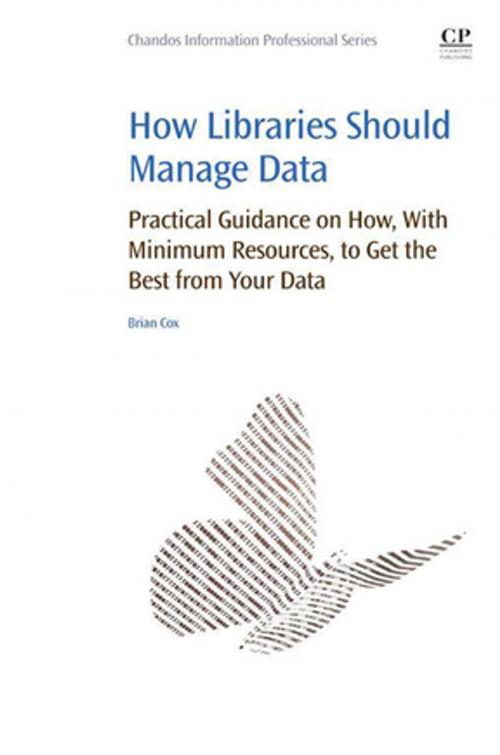How Libraries Should Manage Data
Practical Guidance On How With Minimum Resources to Get the Best From Your Data
Nonfiction, Reference & Language, Language Arts, Library & Information Services, Reference| Author: | Brian Cox | ISBN: | 9780081006719 |
| Publisher: | Elsevier Science | Publication: | September 4, 2015 |
| Imprint: | Chandos Publishing | Language: | English |
| Author: | Brian Cox |
| ISBN: | 9780081006719 |
| Publisher: | Elsevier Science |
| Publication: | September 4, 2015 |
| Imprint: | Chandos Publishing |
| Language: | English |
Have you ever looked at your Library’s key performance indicators and said to yourself "so what!"? Have you found yourself making decisions in a void due to the lack of useful and easily accessible operational data? Have you ever worried that you are being left behind with the emergence of data analytics? Do you feel there are important stories in your operational data that need to be told, but you have no idea how to find these stories? If you answered yes to any of these questions, then this book is for you. How Libraries Should Manage Data provides detailed instructions on how to transform your operational data from a fog of disconnected, unreliable, and inaccessible information - into an exemplar of best practice data management. Like the human brain, most people are only using a very small fraction of the true potential of Excel. Learn how to tap into a greater proportion of Excel’s hidden power, and in the process transform your operational data into actionable business intelligence.
- Recognize and overcome the social barriers to creating useful operational data
- Understand the potential value and pitfalls of operational data
- Learn how to structure your data to obtain useful information quickly and easily
- Create your own desktop library cube with step-by-step instructions, including DAX formulas
Have you ever looked at your Library’s key performance indicators and said to yourself "so what!"? Have you found yourself making decisions in a void due to the lack of useful and easily accessible operational data? Have you ever worried that you are being left behind with the emergence of data analytics? Do you feel there are important stories in your operational data that need to be told, but you have no idea how to find these stories? If you answered yes to any of these questions, then this book is for you. How Libraries Should Manage Data provides detailed instructions on how to transform your operational data from a fog of disconnected, unreliable, and inaccessible information - into an exemplar of best practice data management. Like the human brain, most people are only using a very small fraction of the true potential of Excel. Learn how to tap into a greater proportion of Excel’s hidden power, and in the process transform your operational data into actionable business intelligence.
- Recognize and overcome the social barriers to creating useful operational data
- Understand the potential value and pitfalls of operational data
- Learn how to structure your data to obtain useful information quickly and easily
- Create your own desktop library cube with step-by-step instructions, including DAX formulas















